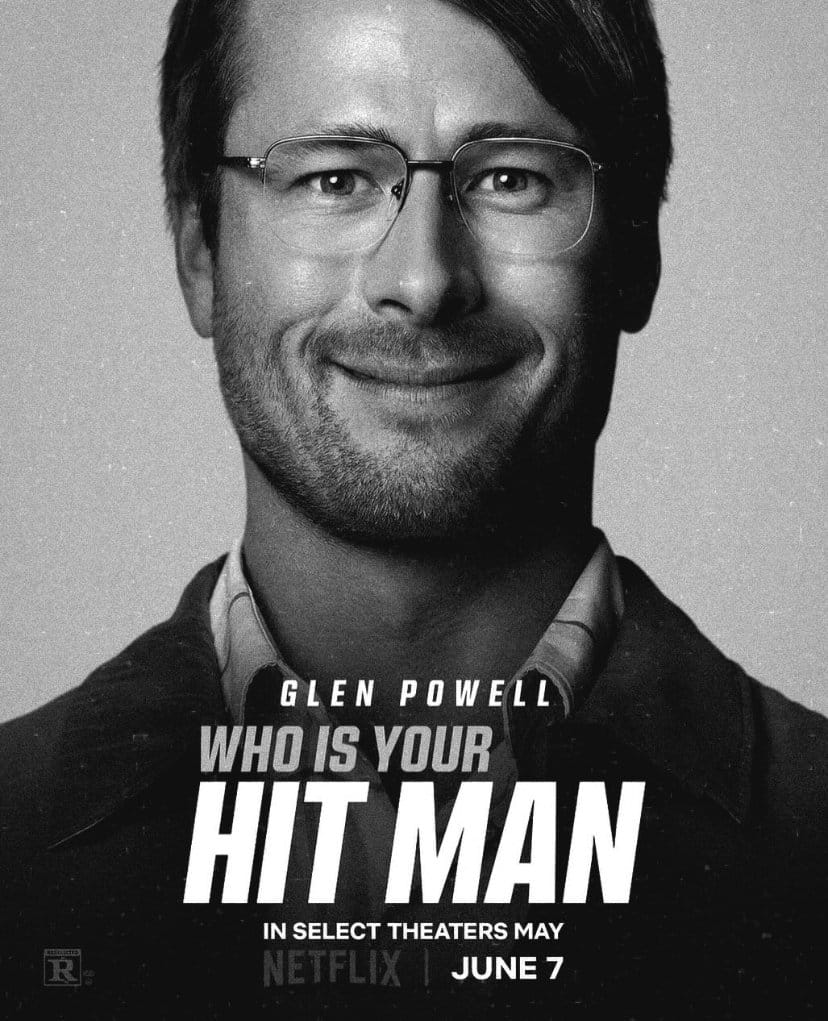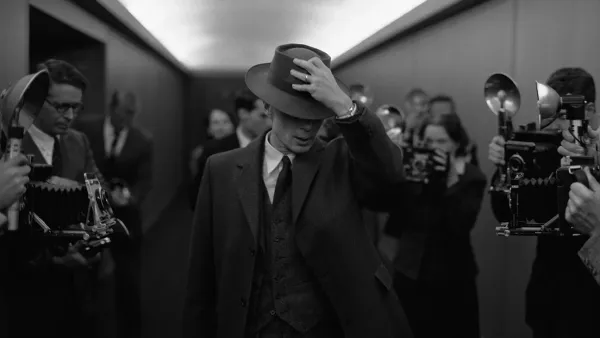‘Hit Man’, and the new Low-Mid Budget Era


There is something so fulfilling about being right, and there, and on it, and around, and paying attention.
I have been a fan of Linklater’s for a while now, and especially his approach to filmmaking resonates with me deeply. There is, simultaneously, a seriousness and irreverence that means he has the mental space to be able to make satisfying, expectation-subverting, and beautiful films. Not the fragile kind of beautiful, the robust kind. The kind that can hold weight.
Glenn Powell first came across my radar in Hidden Figures. Simply - he knows he’s handsome, he knows the camera loves to see him, and Hollywood didn’t quite know what to do with that, and I would argue, even as he starts to emerge into the role he was supposed to fill this entire time - still, they do not fully understand his utility and range in the dramatic field.
Linklater does.
When I first watched ‘Hit Man’ at the BFI London Film Festival last October, my reviews were the following:
Letterboxd: “Linklater and Powell the new Scorsese and DeNiro. If it weren’t for Past Lives this would be the best film of the year, and it’s a competitive category. Will need multiple rewatches. So incredibly smart and also hilarious and tempered - making the high stakes manageable and the low stakes higher. Just stellar.”
My Personal Movie Review Database on my Notion: “levity, surprise, stakes, and true romance. Typical Linklater balance.”
Substack (RIP): “#2 film of the year, behind Past Lives - funny, intelligent, and incredibly satisfying writing. Glenn Powell took part in writing, which shows, but there’s also the element of this man is so photogenic that really helps the thing land. I remember him from Hidden Figures, sometimes you think, damn, where has he been? This is his star vehicle (Top Gun Notwithstanding) if Netflix gives it a push.
(I did not know Netflix was distributing until I sat in the theatre - I’d made a vow not to watch many films with major distribution secured, knowing I’d be able to find them easily after the festival was over. I was hoodwinked by big streaming).
Adria Arjona cannot be beaten when it comes to stealing scenes.”
But UMNIA, a new era how? Isn’t this just another two-white-guys-made-a-movie-with-Netflix thing?
So, technically, yes, but Linklater functions for me as the canary in the coal mine. He has brought up in many interviews what his feelings are on the state of the industry, how easy or hard it is to get good ideas funded, and though Linklater is a known and proven talent, the way he makes movies is markedly outside of the mainstream system. He likes it this way.
One of the reasons other filmmakers, especially new ones, gravitate to him, is that he’s allergic to gatekeeping. He is transparent, when asked, about his decision making process, and the functionings of the industry around those decisions.
So, when Richard Linklater, with a film this good, based on a true and newsworthy story, and a leading man so clearly on the cusp of bringing the A-List back, manages to make a film like this, or rather, has to make a film like this, on a budget of $8million - and a film that makes it to Netflix at that, with a major promotional push - that should tell us all something. Something not so good, for the short term.
Honey, COVID shrunk the budget
In the post-2020 economy, all bets are off. Markets are pretending they’re not in freefall, trade routes are pretending they’re functioning the way they did before, and we’re all pretending that we have managed to afford to kill off a couple million of the most productive people in society, just to keep the cogs of the machine going.
In actuality, this mass death event is catastrophic on a scale not yet calculated.
Every choice made at every level of every industry has been misguided and bad. Watching the 2020 and 2021 strategies of Entertainment and Media conglomerates, unable to envison the future, screw the industry up so royally, and now turn to AI for solutions it may never be able to provide at scale or to a good quality, has been damning.
No one has answers, but everyone has power.
Even before 2020, the wide-spread idea that Netflix would simply go out of business when it’s competitors tried to recreate cable and pull their IP from the platform was another stupid forecast from stupid people who don’t fully understand what the utility of Netflix was in the first place.
Or, subsequently, how easy it would be for Netflix to just become a Studio. As if it’s hard, when you have VC funds and a subscriber base. Nebula was built on much less. Dropout TV was built on much much less.
Now, the studios are tech companies and the tech companies are studios. Which means when Richard Linklater makes a film for £8Mill, Netflix can see the value of his name, and the up-and-coming talent attached, in a way other companies would not have prior.
But, it means Linklater has to make the movie first. Sell the idea to Film Markets that have limited ability, in the changing landscape, to make predictions as to what will sell, and then hope they’ve made the right gamble with him.
Linklater got through the door this time - and he joins many many other low-mid budget filmmakers in doing so - in this new era of American Fictions and All of us Strangers’.
We’re in for a season of this now, and an increasingly less diverse season as it progresses. Fewer and fewer people are going to get in that door, and fewer and fewer things are going to be made, and even the highest-scale projects are going to start slashing budgets.
Because now, even the Low-Mid budget is a risk. For everyone. EVEN WHEN IT’S SO OBVIOUSLY A WINNING IDEA.
80% of the British Film insustry is currently out of work. That’s a tsunami warning sign from a million miles away.
My only consolation is that these cycles happen, the waves wash over you, and if you hold your breath long enough, the waters calm again - the idiots get fired, or go work for Blackrock - and Nature heals.




